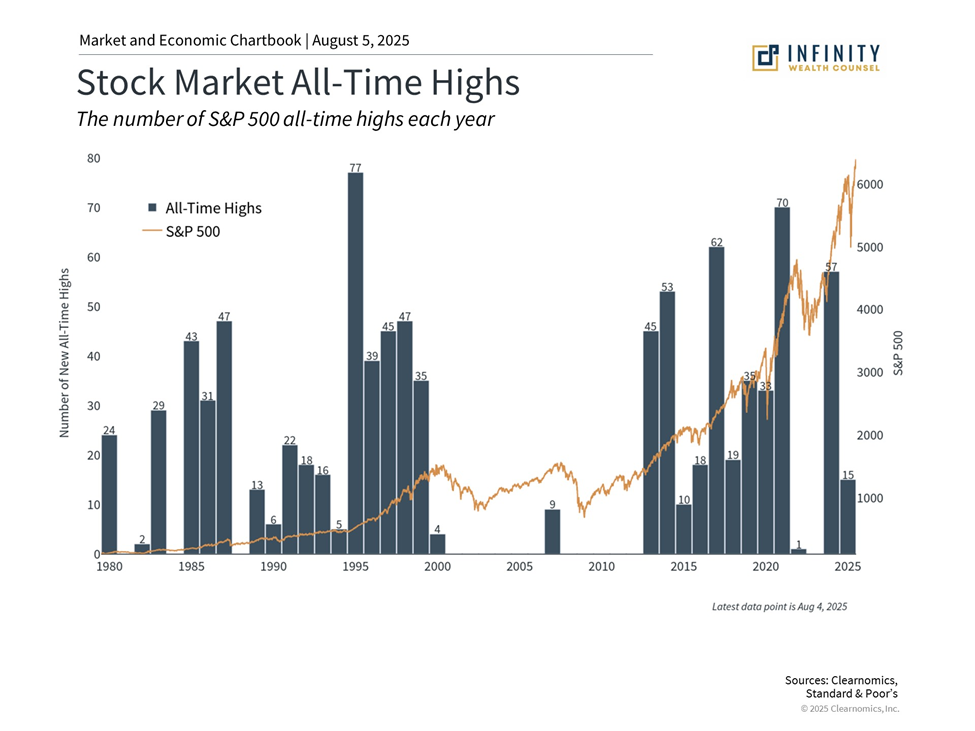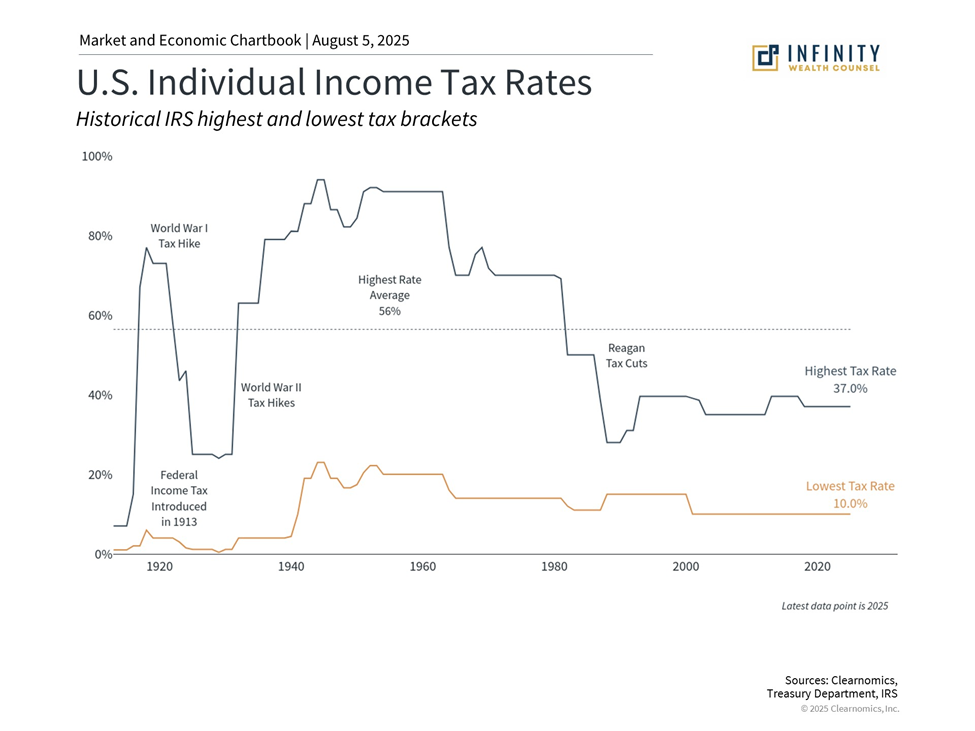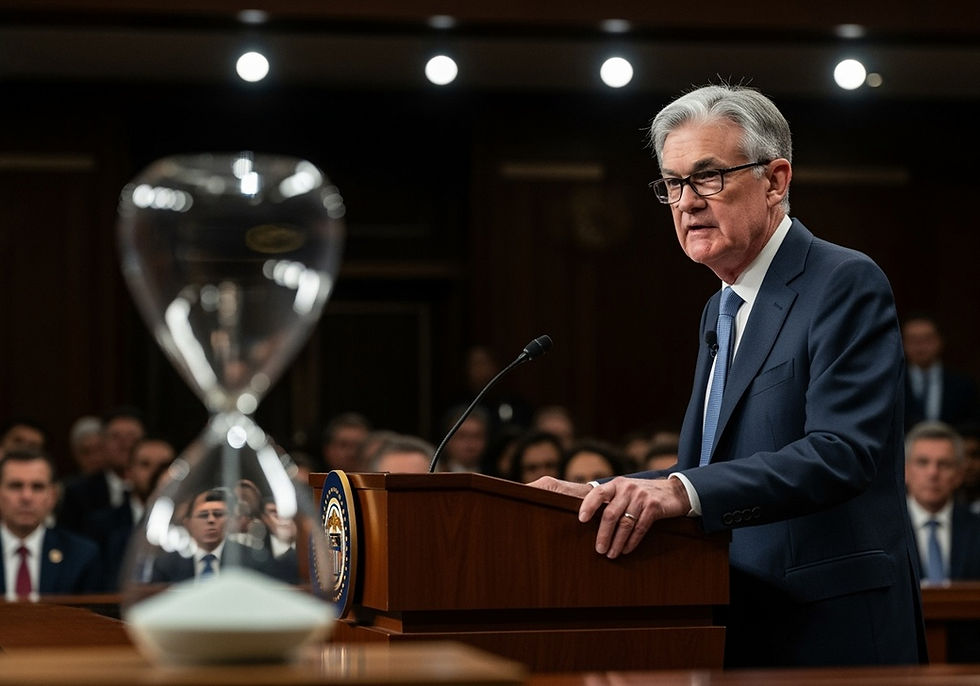July Market Update: Stocks Hit New Highs During Busy Month
- Matt Oberholzer

- Aug 5, 2025
- 3 min read
Stock markets reached new record highs in July, with the S&P 500 hitting ten all-time highs during the month. Strong company earnings reports, steady economic data, and new trade agreements helped push markets higher. The S&P 500 gained 7.8% for the year so far.
However, uncertainty returned at month's end. On July 31, new tariff rates were announced, raising worries about higher prices for everyday goods. Also, the July jobs report showed the job market was weaker than previously thought over the past three months.
In this environment, it's important for investors to stay calm as markets react to new trade news and economic data. The past few months show how much can change quickly, so keeping a long-term view remains the best approach for reaching financial goals.
Key Market Numbers
The S&P 500 (a measure of 500 large U.S. companies) rose 2.2% in July. For the full year, it's up 7.8%.
Bonds fell slightly, declining 0.3% in July. The 10-year Treasury yield (interest rate) ended at 4.38%.
International stocks were mixed, with developed markets down 1.5% and emerging markets up 1.7%.
The U.S. economy grew at a 3.0% annual rate in the second quarter.
The U.S. dollar strengthened during July but is still down for the year.
Bitcoin hit a record high of $120,198 mid-month before ending July at $116,491.
Inflation rose 2.7% compared to last year, meeting expectations.
Only 73,000 jobs were added in July, much lower than usual. The unemployment rate stayed low at 4.2%.
Stock markets hit new record highs

Company earnings reports that started in July showed positive surprises, pushing markets higher. While some companies reported tariff impacts, the effects weren't consistently negative. Over 80% of companies that reported beat earnings expectations. Overall earnings growth was 6.4% per year, lower than recent quarters but better than expected.
Excitement about artificial intelligence helped several Magnificent 7 stocks. Both Microsoft and Meta reported better-than-expected earnings due to major AI investments. Microsoft became only the second company ever to be worth over $4 trillion. However, Tesla disappointed with weak second-quarter results.
The Federal Reserve (the central bank) kept interest rates steady between 4.25% and 4.50% for the fifth meeting in a row. They're balancing inflation concerns from tariffs with economic growth needs. For the first time since 1993, two Fed officials voted against this decision, preferring to cut rates.
New job data showed hiring slowed in July with only 73,000 jobs added. Previous months were also revised down significantly. The three-month average is now just 35,000 new jobs per month, well below normal. This may push the Fed to consider rate cuts, possibly starting in September.
New trade deals and tariff announcements

The White House announced several new trade deals in July with the European Union, Japan, and South Korea. Trade talks with China continue. These deals avoided the worst-case scenario many investors feared, but other countries still face potentially higher tariff rates. On July 31, President Trump announced new tariff rates set to take effect August 7.
As of July 23, consumers face an overall tariff rate of 20.2%, the highest since 1911. So far, companies have absorbed much of this extra cost rather than passing it to consumers. Whether this continues depends on final tariff levels and how companies adapt.
New laws on taxes

On July 4, President Trump signed a major tax bill making many Tax Cuts and Jobs Act provisions permanent, including current tax rates. This provides more certainty for investors by maintaining the low-tax environment, but raises concerns about growing national debt.
The Congressional Budget Office estimates the bill will add over $3 trillion to national debt over the next decade. While there were spending cuts, they were outweighed by tax revenue reductions. The permanent tax changes remove uncertainty that affected long-term planning, since many provisions were set to expire this year.
The bottom line? Markets reached many new highs during a busy month of tariff changes, a new tax bill, and earnings reports. As we move into August, trade deals and company earnings will likely remain key focuses for investors.




Comments